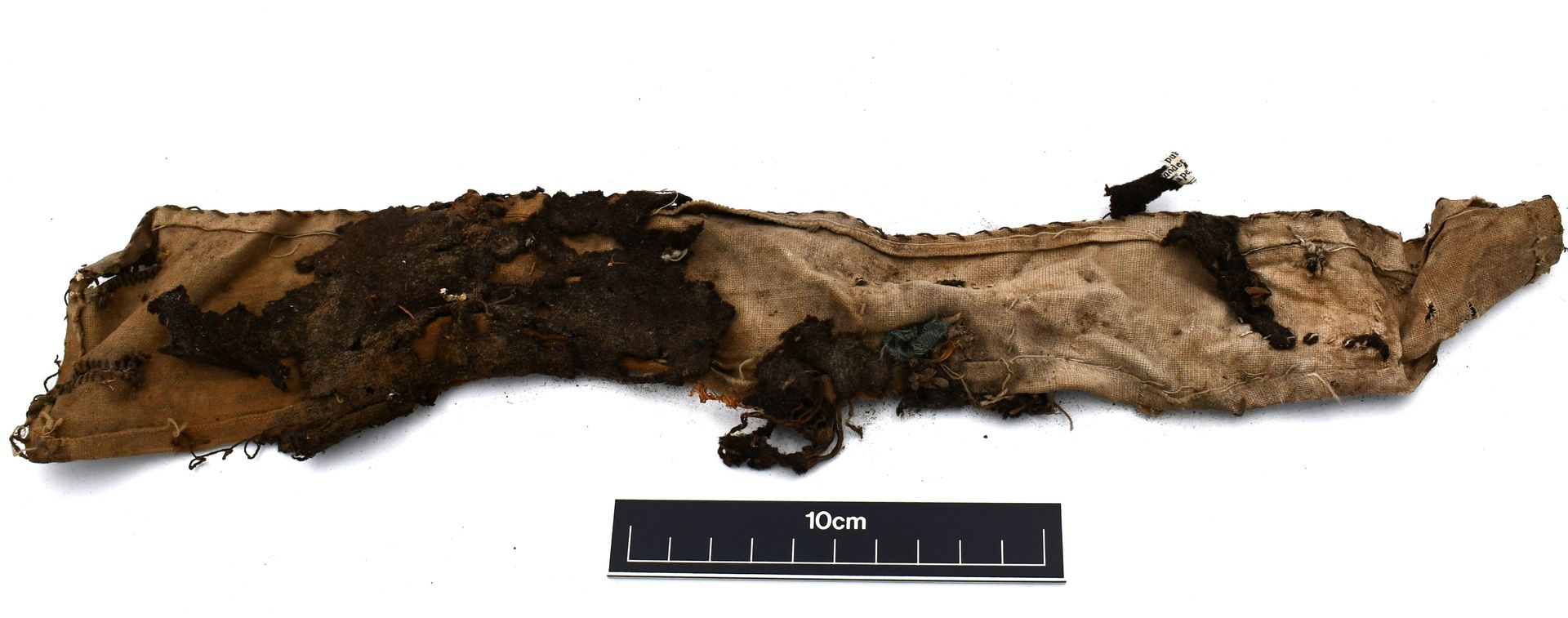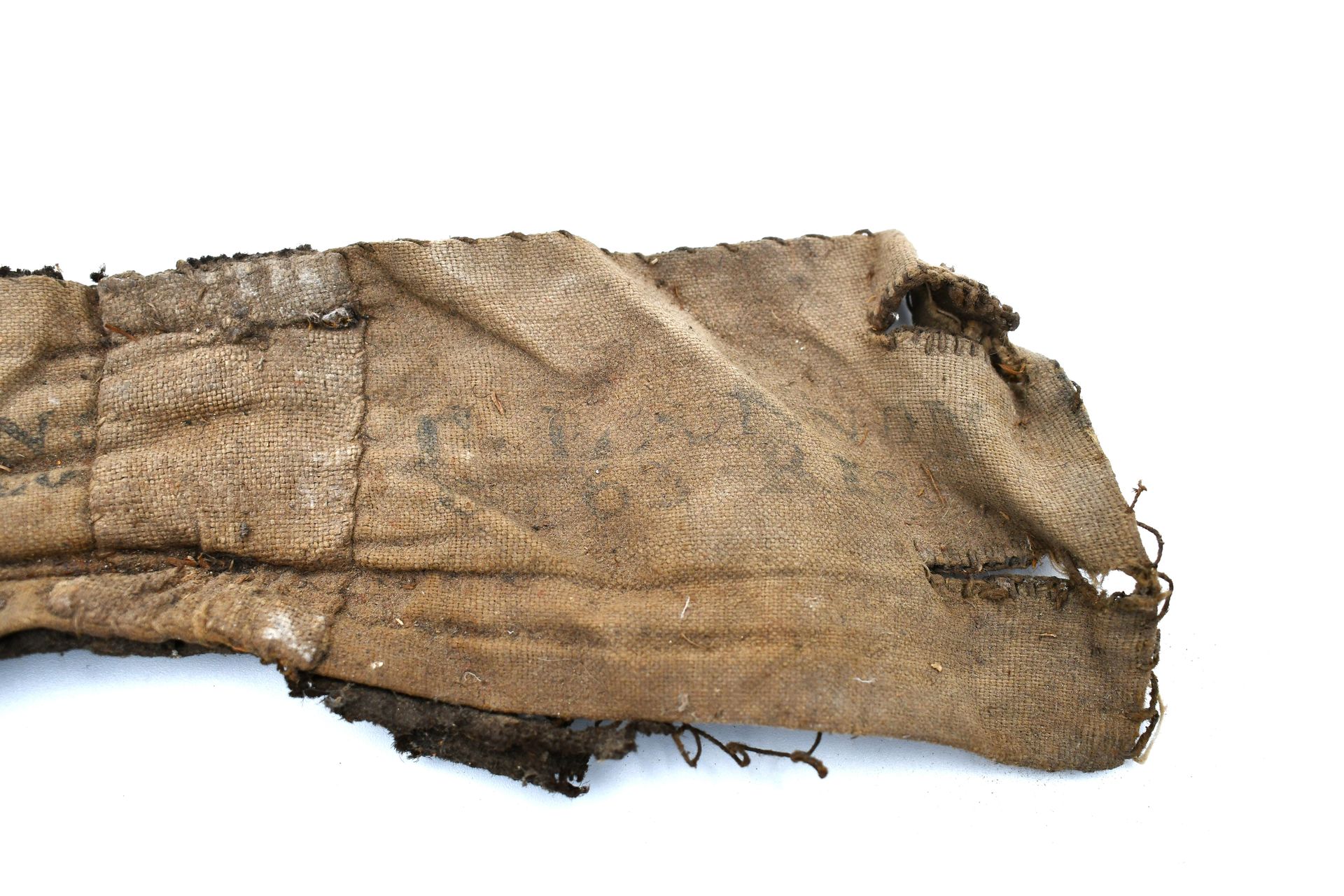Manslaughter, dishonourable discharge and transportation for life

Thomas Glennan, a private in the 63d regiment, was…charged with the wilful murder of James McCabe of the same regiment, by stabbing him in the left breast with a knife on the night of the 2d October, of which wound McCabe died. (The Tasmanian, 2 November 1832, p. 6)
Private Thomas Lennon, labourer, tailor and soldier, came from Breaghwy, County Mayo, Ireland. He enlisted with the British military in April 1821 and embarked for NSW on 31 March 1829 before being stationed in Avoca, Van Diemen’s Land, from June 1832. Lennon formed part of the 63rd Regiment as part of Company No. 1, the grenadier flank company. Soldiers in this company were generally the tallest and strongest in the regiment, leading assaults. The ‘G’ stencilled on the collar beside 63rd Reg presumably reflects his role as a grenadier.
Lennon and other members of the 63rd Regiment, stationed in Avoca (also referred to as ‘St. Paul’s Plains’) were drinking that day at the Greys’ Arm public-house. Between 9pm and 11pm Lennon was found lying drunk on the ground with two constables, all three men having overconsumed and taken to the floor for a rest. As Lennon’s colleagues from the 63rd Regiment tried to rouse them and return to the barracks, Lennon became quite irritable, demanding that they ‘let him alone, or if they did not, he would stick the first of them that came nigh’. Their failure to listen proved fatal:
…immediately after he scrambled on his feet, and drew a clasp knife out of his pocket, with which he inflicted a wound on the deceased, whereby he died. On receiving the wound, the deceased ran a few yards and fell. Morrill, one of the witnesses, having cried out, ‘McCabe, he has stuck you,’ the deceased exclaimed, ‘Oh yes,’ which were the last words he ever spoke; that on conveying him back to the public-house, he opened his mouth twice and then breathed his last… (The Tasmanian, 2 November 1832, p. 6)
Lennon immediately expressed his regrets and sorrows, asking his companions to shoot him on the spot. Lennon and McCabe had always been on good terms with no quarrel or malice between them. Given the lack of malice and an excellent character review from Lannon’s commanding officer, the jury found him not guilty of murder but guilty of manslaughter, saving him from execution. Lennon was given a dishonourable discharge and sentenced to be transported for life to Hobart, though he was then sent to Norfolk Island.
The name ‘Lannon’ is a known variant of ‘Lennon’ in western Ireland, and ‘Glennan’ seems to be a misconstruing of that name. The collar from a hand-stitched brown wool jacket lined with coarse white cotton found underneath the second Solider Barracks at Anglesea Barracks in Hobart, Tasmania, belonged to Private Thomas Lennon, part of the grenadier flank company in the 63rd Regiment. It is likely that the collar was deliberately torn off Lennon’s jacket as part of the dishonourable discharge and finding it has provided a tangible connection to this woeful tale of unfortunate circumstances and poor judgement.
Thanks to Professor Hamish Maxwell-Stewart of Digital Heritage Tasmania and his colleagues at Biographical Database of Australia for connecting the soldier to the jacket. Thanks as well to Dr Kate Hibbert, Department of Defence, for finding the account of Lennon's trial.


Latitude Heritage acknowledges the Traditional Custodians of the lands in which we work, the palawa/pakana in Lutruwita/Tasmania and the Wurundjeri Woi Wurrung in Naarm/Melbourne, VIC. We pay our respects to Elders past and present, extending these respects to all First Nations groups whose land and waters on which we work.
We recognise their continued connection to Country and acknowledge that they never ceded sovereignty.


